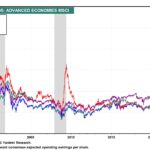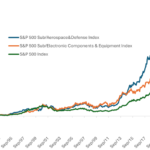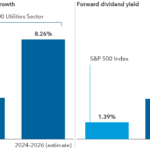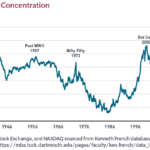The media is a big industry in most developed countries with many companies competing against each other to inform and educate the public. In the financial world, the media plays a big part in acting as a middle man between investors , the state, regualtors and the publicly listed companies. For investors, the availability of a wide-ranging spectrum of news sources also becomes both pros and cons. While having as much information as possible can help an investor better investment decisions, too much information and consumption of media also turns into a disdvantage. In the past investors had to deal with financial websites, chat rooms, forums, mailing lists, investment newsletters, etc. today social media has added another dimension to the information explosion. From Twitter to Facebook and everything in betweeen help spread vast amount of information on a daily basis with investors feeling overwhelemed. Simply having access to all this information 24/7 does not always help investors. In fact, if investors consume all the news they can and take investment actions based on them, they can may hurt their returns. So in a world of high media overload with things push notifications constantly hitting our smartphones and all types of media pundits preaching on the TV, it is highly critical that we consume the media wisely.
Simply put, the media is a friend to a smart investor and an enemy to an ill-informed investor.
Ken Fisher, Chiarman of Fisher Investments. published an interesting article this weekend laying his ground rules for consuming media. Following these rules can help an investor make informed decisions. From the article:
Knowing how the media operates, you can glean something useful by following a few ground rules:
Media reports news
By definition, this is what has already happened. But stocks are forward-looking! If the media is reporting something, the time to react and trade on that particular news item has likely passed.
Stocks reflect all widely known information…
That doesn’t mean, in the near term, the stock market is always correct. It isn’t, because people aren’t always correct. Rather, the stock market reflects widely held views.
…as such, forecasting market direction is about measuring relative expectations
When forecasting stocks over the next 12 to 24 months, reality can matter less than what is expected to happen. Understand what people expect and what you think is likely to happen. It’s that gap between reality and expectations that will drive stocks.
Don’t be a contrarian
Just because the media says something, it doesn’t mean the opposite is true. It just might mean the expected impact is under- or over-stated. Just because they say something is so, doesn’t mean it is. Make that a mantra.
Always put data in proper context and ignore the author’s point of view
Journalists know telling the story straight may not always get eyeballs, so they may include an exciting narrative that obscures reality or use anecdotes which may not be statistically significant.
Ignore adjectives, adverbs and anecdotes unless they highlight something fundamental and isolate the facts. Then consider them in context. Scale the number. Ask: ‘What’s the global impact?’
Be politically agnostic
Many people have an ideology they view as correct, but ideology is another form of bias that can blind you. Vary what you read, and be an equal-opportunity sceptic.
Follow those ground rules and you’ll be a better, more informed consumer of media. Don’t ignore media – use it to your advantage.
Source: ‘I heard it in the news, so it must be so’: Fisher’s financial mythbusters, Money Observer, Feb 24, 2017
The key point to remember is that the media must be mostly used for entertainment purposes. Any information presented by the media must be questioned critically before making a conclusion. As Fisher notes above, journalists and others in the media world have an agenda which can be to garner more viewers, to earn more advertising revenues, promote a company’s product, etc. In order to support that narrative, they will usually have colorful graphics, charts and other third-parties corroborate that story with additional data.
Below are a few personal rules that I follow when consuming media:
- Always look out for what is not mentioned or avoided.
- Be wary of statistics as numbers can be massaged to fit a story.
- Do not watch too much of business TV networks.
- Whenever an “expert” makes a prediction use caution on both the expert and the prediction.
- Do not trust any of the surveys put out by the media as survey responses can easily be manipulated by framing the questions in one way or using a small random to make big conclusions.
From Brexit in the UK to the outcome of the US elections the media has been miserably wrong in a million ways. So smart investors should consume media with a grain of salt in order to be successful in meeting their long-term goals.



